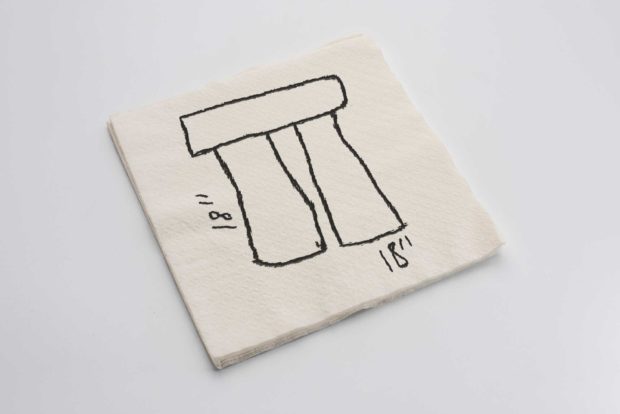Cheapest-to-deliver
Cheapest-to-deliver
/ˈʧiːpɪst tuː dɪˈlɪvə/ (adj.)
|
Of the range of valid means of performing a contract, the one that will cost you the least and irritate your customer the most should you choose it.
Credit derivatives
Ar some point in the 1990s someone came up with the idea of credit derivatives. These are derivative contracts — principally the credit default swap — that allow investors to manage credit risk to debt instruments.
Debt instruments are funny in a number of ways: there is generally little upside volatility — they repay at par, so offer little scope for trips to the moon — a lot of potential downside volatility — they can go to zero, if the debtor fails — they come in all shapes and sizes: bonds, medium term notes, bilateral loans, syndicated loans, deposits —and due to the term nature of debt, no two debt instruments are economically (let alone legally) fungible. Each instrument treads its own, albeit correlated, value path.
As such, the market is generally opaque and, “sticky”: debt instruments are illiquid in a way equities, which generally have none of those limitations, are not. By the same token some debt instruments — publicly quoted senior bonds — are a lot more liquid and transparent than others.
You might be able to buy a put on quoted bond at a reasonable price, but good luck with a privately negotiated term loan.
Since, except in a tail event disaster scenario, debt repayment values are fairly stable (compared with equities or commodities) and as long as your borrower doesnʼt blow up you will eventually get your money back this usually doesnʼt matter much — but when it does matter, it matters a lot.
The credit default swap emerged is a neat way of managing that risk. To cover against the loss on my private bilateral loan I could buy a credit derivative which would pay out if the borrower defaulted on its quoted debt (a public event I donʼt need to prove) and my counterparty must pay me a sum calculated on the estimated market price of a range of observable liquid instruments. A proxy for my loss: not perfect, but good enough
Trades are zero-sum games
Where a contract can be fully understood in monetary terms, expect the parties to do the utter bare minimum to discharge it.
These are “transactions”; zero-sum, finite games — neither side has any expectation beyond the competent performance of its literal terms. When that is done, all remaining expectations fall to zero. The parties can walk away and never meet again.
Transactions, so regarded, are “trades”: quid-pro-quo, “barter” exchanges between parties who may or may not, otherwise, even like each other. The equity of the bargain is completely contained in the exchange: once it is done no abiding trust or faithfulness remains or is expected.
Cheapest-to-deliver
We should not, therefore, be surprised if the person to whom we sold an financial option exercises it to her own advantage. That is why she bought it. That was the deal. So we draw our trade documentation to be clear and to avoid giving away unintended options.
A famous example arose in the CDS market during the financial crisis. Credit derivatives designate a specific Reference Obligation that triggers a Credit Event, but a wider class of Deliverable Obligations that the Buyer may use to value its credit loss should one happen. This gave Buyers a “cheapest-to-deliver” option and, when the world was in flames and everyone’s hair was on fire they exercised it, selecting the cheapest Deliverable Obligations they could find.
This should not have, but did, surprise credit derivative Sellers. When a torrent of Credit Events thundered through the market, Sellers affected outraged when Buyers referenced not the freshly-issued, publicly quoted, liquid senior bonds they expected, but rather obscure, deeply subordinated, perpetual notes that hadn’t traded since issue, in 1975, that they¹d never heard of, and which barely scraped into eligibility as Deliverable Obligations by some oversight in the drafting on the Confirmation.
Cue much litigation, but the real lesson: read trade documents with peril-sensitive sunglasses. (The other lesson is that credit derivatives are silly things, but that is a story for another day.)
Relationship contracts are not zero-sum games
But discrete trades are an unusual type of contract. Most commercial relationships (even trading ones) are based on trust. They operate the same way social relationships do, with ongoing, permanently undischarged “social debts” between the parties. These are the ties that bind, in which credit is possible. We do not work-to-rule; if there are errors or misunderstandings we are, within reason, forgiving of them. We allow each other flex: as long as we are making a return from the relationship we are happy to leave something on the table in the interests of the longer-term relationship.
CDOs and cheapest-to-deliver
Now: zero-sum contracts like this are — should be — very much the exception. Commercial arrangements — even those governing the trading of zero-sum financial contracts — are not like that. They work best where the counterparties trust each other. This is the difference between a single round and an iterated series of the “prisoner’s dilemma”.
Now this “cheapest-to-deliver” concept is no long-lost curio from the history of the structured credit market. Being a foundational premise of the agency problem, it is in turn a cornerstone of any service industry. You know, such as the financial services industry, or the legal services industry, and the consulting industry.
Any organisation to whom one outsources one’s operational framework for the long term will measure its success by how closely it can tack, on average, to the bare minimum whilst not too regularly over-stepping it.
